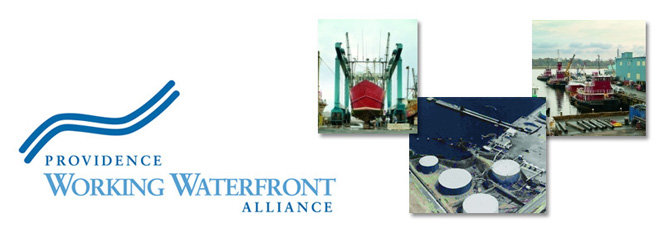Today’s Providence Journal has an editorial about the potential for Rhode Island’s ports to help ease highway congestion by attracting short sea shipping lines. And now, thanks to a new federal program promoting short sea shipping, the Port of Providence and Quonset could be eligible for port infrastructure improvement grants.
When is a waterway a highway? When it is designated as such by the federal government. The James River between Hampton Roads and Richmond, Va., is getting such a designation, along with millions in capital construction funds to upgrade navigation, as part of this year’s energy bill. The aim is to facilitate the shipping of cargo containers by barge, rather than by truck, to save fuel and reduce highway congestion.
Initially, the plan of James River Barge Line calls for transporting 60 40-foot containers a week each way between Norfolk and Richmond, but it hopes to increase that 10-fold in the service’s first three years. That would eliminate 30,000 truck trips annually on congested Route 64 between the two cities. Ultimately, the venture hopes to provide daily barge service.
The energy bill also provides greater access to capital for shippers to encourage startup of short-sea shipping services.
This is where Providence comes in, with its spacious port facilities, which have sufficient room for handling container cargoes. It and other southern New England ports, such as Quonset Point and New Bedford, are naturals for barge lines that would take cargo traffic off Route 95. The Port of New York pours a tremendous volume of containerized freight into the Northeast highway and rail grid. Transshipping cargoes to regional ports by barge will save fuel, reduce air pollution and reduce traffic congestion . . .
A new study suggests that 30 ports could be upgraded to accommodate shipping containerized cargoes by barge for a total of $150 million, or $5 million per port. In the infrastructure world, that’s not a lot of money. Barge cargoes can be rolled on and off, rather than being hoisted by cranes . . .

